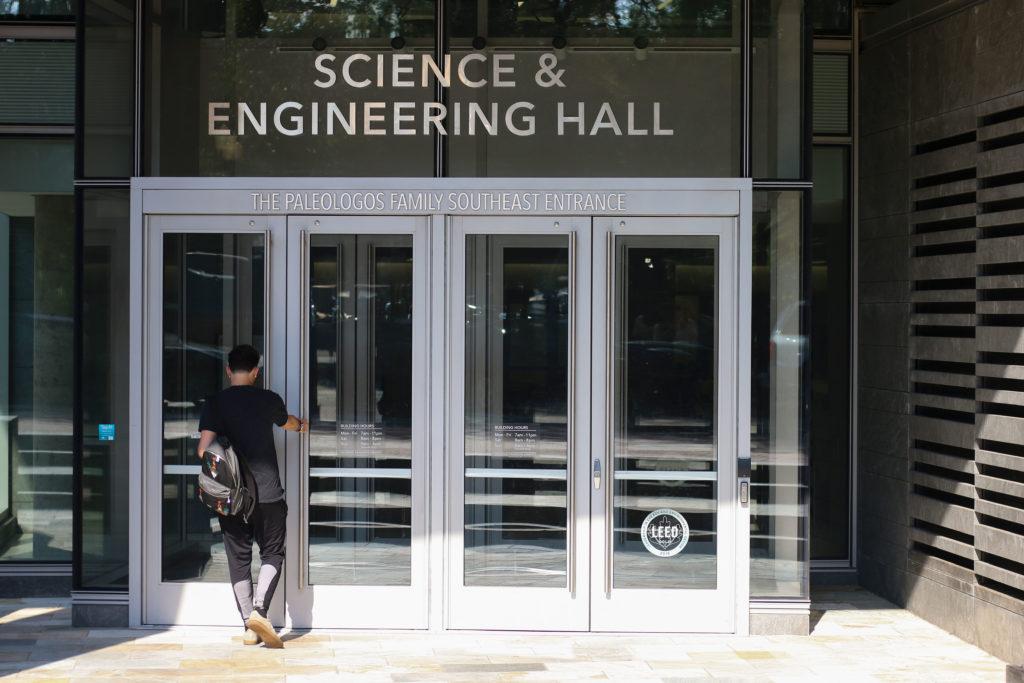Students don’t have to step on campus anymore to receive an advanced degree in electrical engineering.
The School of Engineering and Applied Sciences launched a new online master’s program in electrical engineering in late August and will accept students to begin the program starting in January 2019. Officials said the degrees are the product of a national demand for online programs and increased interest in electrical power and information transmission – subjects the program touches on.
Suresh Subramaniam, the chair of the electrical engineering department, said the online program will target students who do not have the time in their schedules to take courses on campus.
Students can enroll in one of three concentrations as part of the online electrical engineering master’s program, including electrical power and energy, signal and image processing systems and controls, and communications and networks, according to the program’s website.
Subramaniam said the 10-course program will allow students to get a leg-up in the engineering workforce, where advanced degrees are highly valued.
“Students graduating from electrical engineering programs, as it implies, are very well positioned to command good salaries,” he said.
Overall employment of electrical engineers is projected to grow 7 percent between 2016 and 2026 because of advances in technology, according to the Bureau of Labor Statistics.
Subramaniam said officials decided to offer the new degree online because the department is increasing its focus on expanding offerings to students who can’t access campus. Meanwhile, interest in the on-campus electrical engineering master’s program has grown in recent years, with enrollment jumping by 75 percent between 2014 and 2017, according to institutional data.
The University continues to expand its online course offerings annually, and last year, online revenue made up about 10 percent of GW’s revenue stream despite increased scrutiny about the quality of the University’s online programs. SEAS students can enroll in online master’s degrees in engineering management, systems engineering, climate change engineering and policy, and cybersecurity policy and compliance.
Shahram Sarkani, the director of online and off-campus programs for SEAS and Engineering Management & Systems Engineering, said the degrees offer engineering students the necessary skills to excel in specific engineering areas, like exploring the distribution of energy.
“Students gain the comprehensive background that electrical engineers need to function in multidisciplinary teams and lead complex engineering projects,” Sarkani said in an email.
Higher education experts said adding new engineering programs matches a national demand for engineers and having an online offering allows the University to target potential students who would not have considered GW before.
Peter Beerel, a professor of electrical engineering systems at the University of Southern California, said several universities offer online graduate programs in engineering. USC and at least four of GW’s peer schools offer online programs in engineering, according to their department websites.
“With the increased demand for engineers in the United States, online programs like these are wonderful because they give students an opportunity who might not have been able to the ability to get an engineering degree,” Beerel said.
The number of graduate students nationwide taking online courses increased by 8 percent between 2015 and 2016, according to a report published by the Babson College education research group earlier this year.
He added that while there are obstacles to pursuing an online engineering program – like limited in-person communication – the online programs provide enough support and online tools to limit challenges.
Chris Murphy, the co-director of the online master’s degree in computer and information technology program at the University of Pennsylvania, said the increase in online engineering programs is fueled by a desire to reach new students who would not otherwise be able to attend classes.
He added that it’s easier to learn engineering skills online than other disciplines, like humanities, because students learn more by programming themselves rather than relying on lectures or class discussion.
“A professor can write a proof, but you have to do it yourself to really understand it,” he said.





